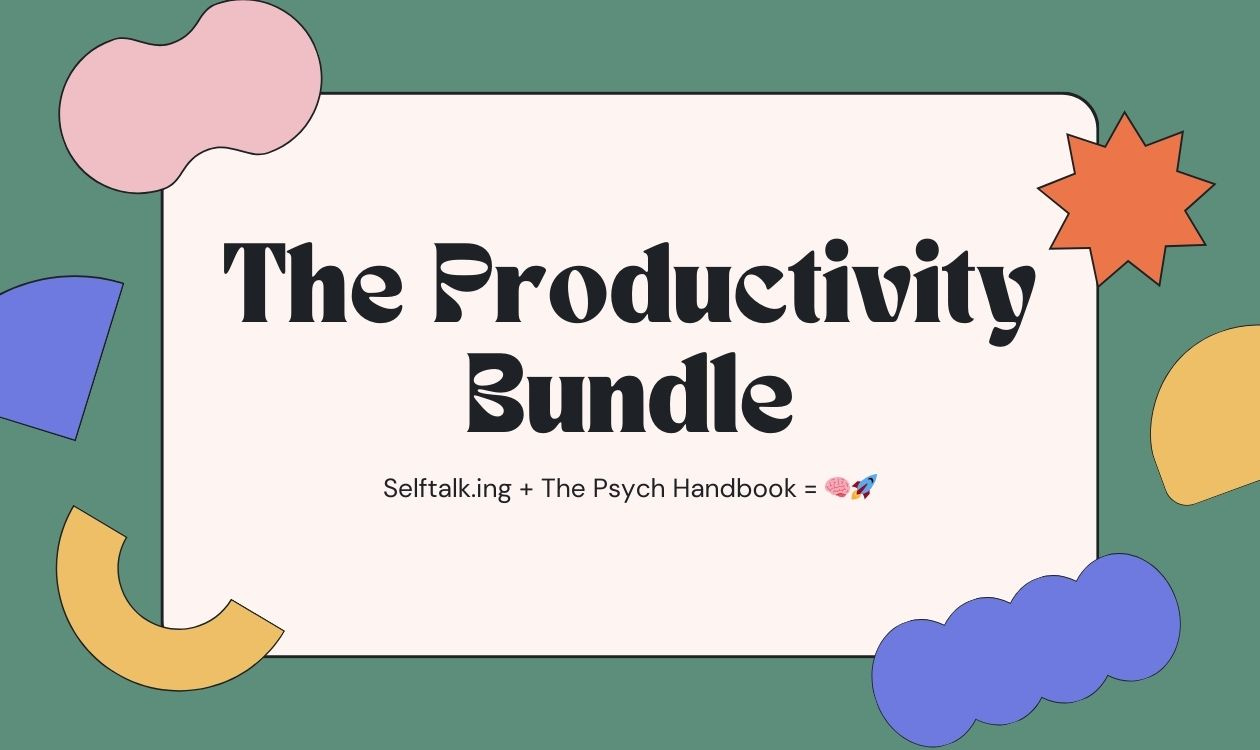Reader,
You would’ve definitely heard that subject line before, right? This study says that thinking that one is attractive increases the tendency to support inequality.
Let’s read on.
What is it?
This research investigates the relationship between self-perceived attractiveness (how attractive someone thinks they are) and their support for social inequality.
The authors propose that feeling attractive leads people to see themselves as belonging to a higher social class, which in turn makes them more likely to endorse and accept inequality in society.
Introducing “The Productivity Bundle” ✨
Learn Psychology with The Psych Handbook & Crush Your Goals with Selftalk.ing!
What do I need to know?
This study raises important questions about the role of physical appearance in shaping social attitudes and underscores the need to be aware of how subtle cues can influence our beliefs and behaviors.
Attractiveness and social class: People who perceive themselves as more attractive tend to see themselves as belonging to a higher social class, even when controlling for actual socioeconomic status.
Attractiveness and inequality: Feeling attractive leads to greater support for group-based dominance, stronger belief in ideologies that justify inequality (e.g., "people get what they deserve"), and reduced willingness to donate to social equality movements.
Mediation by social class: The effect of attractiveness on support for inequality is largely explained by changes in people's perceived social class.
Specificity of effect: This effect is specific to attractiveness and not simply a result of feeling good about oneself in general. Priming people to feel empathic or having integrity did not have the same effect on social class perceptions or support for inequality.
Reference:
https://www.gsb.stanford.edu/sites/default/files/publication-pdf/Belmi%20Neale%20Mirror%20Mirror%20OBHDP.pdf




